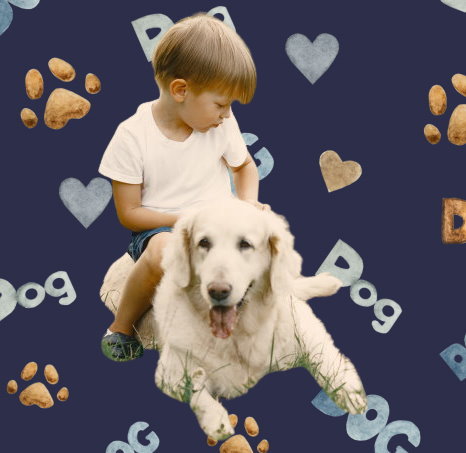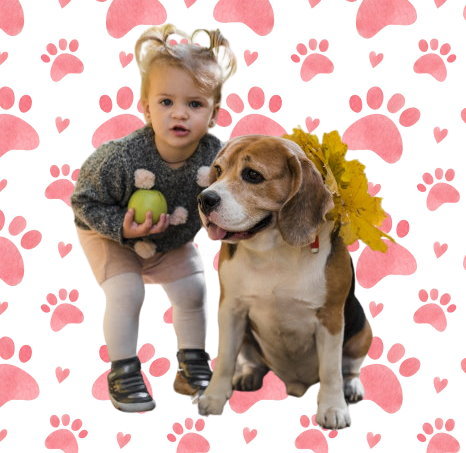Welcome to Dog Training Newbies !
Welcome to Dog Training Newbies !

Have you ever watched dogs at play and marveled at their exuberance and joy? Play is an integral part of a dog's life, serving a crucial role in their overall well-being and social development. But what exactly is happening when dogs engage in play? In this article, we will delve into the science behind dog play, exploring its benefits and unraveling the intricate social dynamics that come into play.
THE IMPORTANCE OF PLAY FOR DOGS
Play is not just a frivolous activity for dogs; it serves multiple purposes that are essential for their physical, mental, and social development. When dogs play, they engage in a range of behaviors that mimic hunting, exploring, and social interactions. Through play, dogs refine their motor skills, improve coordination, and enhance their overall physical fitness. Additionally, play provides mental stimulation, helping to alleviate boredom and prevent behavioral issues.
PROMOTING SOCIAL BONDS
One of the primary functions of play in dogs is to facilitate social bonding. Puppies, in particular, engage in play to establish relationships, develop social skills, and learn the rules of social interaction. Through play, they learn important cues and signals, such as appropriate bite inhibition and body language. Playful interactions with littermates and other dogs teach puppies valuable lessons about communication, cooperation, and understanding social hierarchies.
TYPES OF DOG PLAY
Dog play can take various forms, each serving a unique purpose. Rough-and-tumble play involves chasing, wrestling, and play fighting, allowing dogs to practice their physical skills and engage in mock combat. Object play involves interacting with toys or other objects, providing mental stimulation and satisfying a dog's natural instinct to explore and manipulate their environment. Chasing and retrieving games tap into a dog's prey drive and provide an outlet for their energy.
PLAY AS A STRESS RELIEVER
Play has been found to have stress-reducing effects on dogs. It serves as a natural outlet for pent-up energy and helps dogs release tension and frustration. Playful interactions with other dogs or humans can also provide a sense of comfort and security, promoting a positive emotional state. Regular play sessions can help alleviate anxiety and promote overall emotional well-being in dogs.


THE ROLE OF PLAY IN CANINE SOCIAL HIERARCHIES
Play serves as a tool for establishing and maintaining social hierarchies within a group of dogs. During play, dogs engage in role-playing and negotiation, testing each other's boundaries and asserting their own position within the social order. Play bowing, where a dog lowers their front end while keeping their rear end elevated, is a common behavior signaling a desire to engage in play and indicating non-aggressive intent. Dogs take turns being the chaser and the chased, exhibiting a reciprocal and cooperative nature within the play dynamic.
THE IMPORTANCE OF PLAY FOR ADULT DOGS
While play is often associated with puppies, it remains significant for adult dogs as well. Play provides an outlet for energy, helps maintain physical fitness, and strengthens the bond between dogs and their human companions. Engaging in play with adult dogs can enrich their lives, increase their trust in humans, and provide opportunities for training and mental stimulation.
PLAY AND CANINE RELATIONSHIPS WITH HUMANS
Playful interactions between dogs and humans contribute to the overall quality of their relationship. Playing games, such as fetch or hide-and-seek, strengthens the bond and trust between dogs and their owners. It also provides an avenue for positive reinforcement training, helping dogs learn and practice commands while having fun.
Dog play is a fascinating and essential aspect of a dog's life. Through play, dogs gain physical fitness, mental stimulation, and social skills. Playful interactions with littermates, other dogs, and humans shape their social dynamics and facilitate the establishment of social hierarchies. Whether it's chasing a ball, engaging in rough-and-tumble play, or engaging in interactive games, play is a vital component in a dog's overall well-being and contributes to the enriching and lifelong relationships between dogs and their human companions. So, the next time you witness dogs at play, appreciate the science and significance behind their joyful interactions.